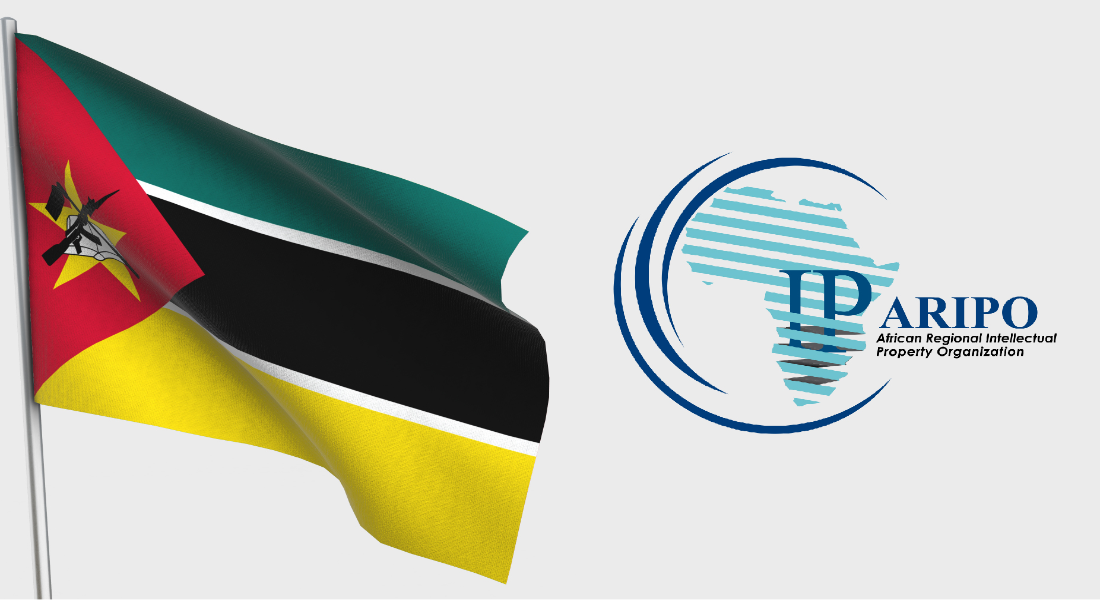
Mozambique joins the Banjul Protocol on trademarks
The African Regional Intellectual Property Organisation (ARIPO) was established in 1976 under the Lusaka Agreement. It is an intergovernmental association, which brings together jurisdictions to cooperate in IP matters and bolsters IP protection for its members by facilitating proceedings, simplifying formality requirements, and providing an online register and an online gazette. The member states are Botswana, Eswatini, Gambia, Ghana, Kenya, Lesotho, Liberia, Malawi, Mozambique, Namibia, Rwanda, Sao Tome and Principe, Sierra Leone, Somalia, Sudan, Tanzania, Uganda, Zambia and Zimbabwe. Further, the Lusaka Agreement states that membership is open to countries in the African Union and members of the United National Economic Commission for Africa.
ARIPO proceedings are ruled by four major protocols:
- the Harare Protocol on Patents and Industrial Designs;
- the Banjul Protocol on trademarks;
- the Swakopmund Protocol on the Protection of Traditional Knowledge; and
- the Arusha Protocol for the protection of New Variety Plants.
Not all ARIPO member states have joined these protocols – each country can decide to ratify all or a particular protocol and incorporate it into its legislation. For entry into force of a protocol, a country must sign and then deposit its instrument of ratification or instrument of accession with the director-general of ARIPO with an indication of its acceptance to be bound to its described rules and regulations.
The following countries have enacted the Banjul Protocol for Trademarks (1993): Botswana, Eswatini, Lesotho, Liberia, Malawi, Namibia, Tanzania, Uganda, Zimbabwe, and Sao Tome and Principe.
Mozambique, a Portuguese-speaking country and the first member state to have never had a constitutional connection with the United Kingdom or a Commonwealth member state, joined ARIPO in February 2000. Until very recently, it was a member of the Harare Protocol only.
In 2016 revisions to Mozambique’s Industrial Property Code (Decree No 47/2015 (31 December 2015)) came into force. In particular, Chapter IV(II) entitled “Regional Registration” included provisions to allow the immediate implementation of the Banjul Protocol when the country joined ARIPO. The government finally deposited its instrument of accession to this protocol at ARIPO on 15 May 2020.
In compliance with Section 11 (11:4) of this protocol, it takes three months from the state depositing either the instrument of accession or signature followed by ratification for the protocol to enter into force. Thus, Mozambique will be eligible for designation at ARIPO from 15 August 2020.
This is excellent news for future applicants as ARIPO is a much more cost-effective choice when it comes to filing applications in multiple jurisdictions. Benefits also include simplified processes (eg, Mozambican applications require the notarisation of the power of attorney, while ARIPO requires signed power of attorneys for trademark applications only). Since ARIPO’s formalities are standardised, the requirements are transversal to every member state, which means that prerequisites for filing trademarks in Mozambique through the regional route are now easier to handle. This is an interesting upside for applicants to consider when choosing between regional or national filing.
This is a co-published article, which was originally published in the World Trademark Review (WTR).
Lista de Territórios
Não existem resultados para a sua pesquisa.
- África
- África do Sul
- Angola
- Argélia
- Benin
- Botsuana
- Burkina Faso
- Burundi
- Cabo Verde
- Camarões
- Chade
- Comores
- Costa do Marfim
- Djibuti
- Egito
- Eritreia
- Eswatini (Suazilândia)
- Etiópia
- Gabão
- Gâmbia
- Gana
- Guiné
- Guiné-Bissau
- Guiné-Equatorial
- Lesoto
- Libéria
- Libia
- Madagáscar
- Maiote
- Malaui
- Máli
- Marrocos
- Maurícias
- Mauritânia
- Moçambique
- Namíbia
- Níger
- Nigéria
- Quénia
- República Centro-Africana
- República Democrática do Congo
- República do Congo
- Reunião
- Ruanda
- Saara Ocidental
- São Tomé e Principe
- Seicheles
- Senegal
- Serra Leoa
- Somália
- Sudão
- Sudão do Sul
- Tanzânia
- Togo
- Tunísia
- Uganda
- Zâmbia
- Zanzibar
- Zimbábue
- África (OAPI)
- África (ARIPO)
- Mais Territórios
- Macau
- Maldivas
- Portugal
- Timor Leste
- Marca da União Europeia (EUIPO)
- Marca Internacional (Sistema de Madrid)
- Patente Europeia (IEP)
- Tratado de Cooperação em matéria de Patentes (PCT)




